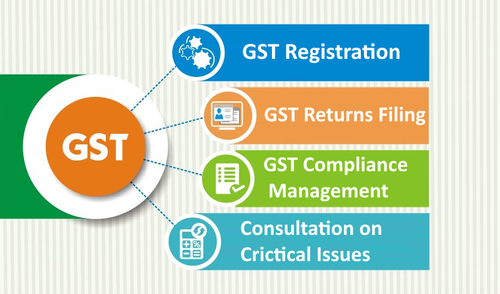Inexpensive Options for the very best GST Registration Services in Singapore
Inexpensive Options for the very best GST Registration Services in Singapore
Blog Article
From Beginning to End Up: The Ultimate Roadmap to GST Registration for Companies Seeking Financial Stability
Navigating the intricacies of Product and Services Tax Obligation (GST) registration is an important action for companies pursuing economic stability. From understanding the essential principles of GST to abiding by post-registration standards, the process can seem discouraging at very first look. Damaging down the roadmap right into convenient actions can streamline the registration journey for businesses looking to enhance their financial standing. Allow's explore the important elements that make up this ultimate roadmap and discover how each stage adds to laying a solid foundation for monetary success.
Comprehending GST Fundamentals
Delving into the essential concepts of Item and Services Tax Obligation (GST) is important for getting a detailed understanding of its ramifications on services and the economy. Input Tax Credit Scores (ITC) is a significant function of GST, allowing organizations to declare credit scores for taxes paid on inputs, decreasing the overall tax obligation concern. Recognizing the fundamentals of GST is important for businesses to conform with tax obligation laws, handle their finances effectively, and add to the country's economic growth by getting involved in a clear tax system.
Qualification Requirements for Enrollment
As of the current regulations, the threshold limitation for GST registration is a yearly aggregate turn over of 40 lakhs for services operating within a state, other than for unique group states where the limit is 20 lakhs. In addition, specific businesses are needed to sign up for GST irrespective of their turnover, such as interstate vendors, laid-back taxed persons, and businesses liable to pay tax under the reverse charge system. It is crucial for services to thoroughly evaluate their turnover and deal kinds to establish their GST registration obligations properly.
Files Needed for Enrollment
Having actually met the qualification standards for GST registration, businesses must now ensure they have the requisite records in place to continue with the registration procedure successfully. The files required for GST registration typically include proof of business constitution, such as partnership action, enrollment certification, or consolidation certificate for different types of organizations. go now Additionally, businesses need to offer papers developing the primary location of business, such as a rental arrangement or electricity costs.
Step-by-Step Enrollment Refine
Starting the GST registration procedure involves a series of organized actions to make certain a smooth and compliant enrollment for services. The initial action is to go to the GST site and complete the enrollment kind with exact information of the organization entity. Following this, the candidate gets a Short-term Recommendation Number (TRN) which is utilized to return to the application procedure if it's not finished in one go.
Following, all needed documents as per the checklist provided by the GST portal requirement to be submitted. These papers usually consist of evidence of service address, identification and registration evidence of promoters, financial statements, and organization entity's PAN card.

Post-Registration Conformity Guidelines

Verdict
Finally, organizations seeking economic security should comprehend the fundamentals of GST, satisfy qualification criteria, collect necessary documents, comply with the detailed registration procedure, and abide by post-registration standards - Best GST registration services in Singapore. By adhering to these steps, businesses can guarantee compliance with tax regulations and maintain monetary stability in the future
Additionally, particular businesses are needed to register for GST regardless of their turnover, such as interstate vendors, casual taxed persons, and businesses responsible to pay tax obligation under the reverse charge system.Having satisfied the qualification criteria for GST enrollment, businesses have to now ensure they have the requisite papers in place to proceed with the enrollment procedure efficiently. The files needed for GST registration commonly include proof of organization constitution, such as partnership deed, enrollment certificate, or consolidation certificate for various types of organizations. In addition, businesses require to provide papers establishing the major location of organization, such as a rental agreement or electrical power expense.Commencing the GST registration procedure includes a collection of organized steps to guarantee a seamless and certified registration for companies.
Report this page